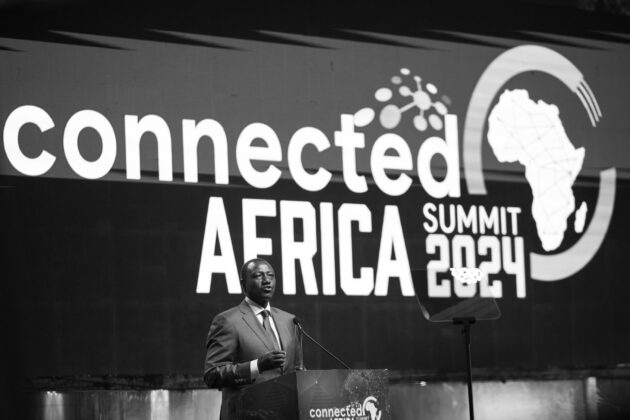
President Ruto urges African nations to unite in digital transformation » Capital News
NAIROBI, Kenya, Apr 22 – African countries should work together to formulate and implement a harmonised model for digital transformation, President William Ruto has said.
This model, the President said, should be governed by a Network of ICT Authorities and overseen by the integration of the digital transformation initiatives.
Harmonising digital policies across the continent, the President said, will help fastrack Africa’s ambition to position itself as the foremost global trade powerhouse, especially with the implementation of the African Continental Free Trade Area (AfCTA) agreement.
“This collaborative spirit is what we need to transform Africa into a digitally empowered and economically thriving continent,” President Ruto said.
He said the ICT sector continues to expand as a result of emerging technologies and increasing sophistication in the digital economy.
“We are eager to share these experiences and learn from our colleagues across the continent. It is by sharing knowledge and experiences, pooling resources, harmonising strategies, aligning investments and working as partners that we shall rise together,” he said.
President Ruto made the remarks at the Uhuru Gardens, Nairobi, on Monday, during the official opening of Connected Africa Summit, 2024.
He said the summit is crucial in mobilising the continent and global partners to collaborate in confronting the challenges that prevent majority of Africans from accessing digital connectivity.
“The expected outcomes of this summit, therefore, are not mere objectives, but concrete, impactful commitments and milestones on our journey towards innovative global alliances that will expand our infrastructure, secure our digital spaces and democratise access to technology, ensuring every African is included in our digital revolution,” the President said.
He regretted that Africa’s digital infrastructure coverage, access and quality lag far behind other regions. At the end of 2021, 84 per cent of people in the continent lived in areas where 3G connectivity service was available, while 63 per cent had access to 4G mobile coverage.
President Ruto noted that only 22 percent of people in Africa were using mobile Internet services.
“This gap between coverage and usage is similarly large for broadband Internet connectivity, with 61 per cent of people in Africa living within the broadband range but are unable to use it,” he said.
The advantages of digital inclusion are immense, including intensifying job creation and poverty reduction.
President Ruto pointed out that a thriving digital economy requires a highly skilled digital workforce to build on advances in technology and drive innovation and productivity.
At the same time, he said closing the digital divide is a priority in enhancing connectivity, expanding the contribution of the ICT sector to Africa’s GDP and driving overall growth.
Saying Africa’s digital economy has immense potential, the President said it is projected to reach $712 billion by 2050.
“This growth projection is informed by unfolding demographic dynamics: Our youthful population, the youngest globally, is motivated and prepared to drive the digital economy, foster innovation and entrench new technologies,” President Ruto said.
US Ambassador to Kenya Meg Whitman commended efforts being made by Africa, saying it will become a technological giant this century.
She said she was impressed that many African countries were working closely with the United States companies in the development of the digital economy.
“Investment in technology will enable many US companies to invest in the African continent,” Ms Whitman said.
European Union Ambassador to Kenya Henriette Geiger pointed out that 10 percent of the region’s financing to Africa were being used in the development of the digital economy.
“A single digital market will greatly transform the lives of citizens in the African continent,” said Ambassador Geiger.
Prime Cabinet Secretary Musalia Mudavadi said the time has come for African countries to embrace technology for prosperity.
Also oresent were COMESA Secretary-General Chileshe Mpundu Kapwepwe, Smart Africa CEO Lacina Kone, ICT Cabinet Secretary Eliud Owalo and several ICT ministers from various African countries.
